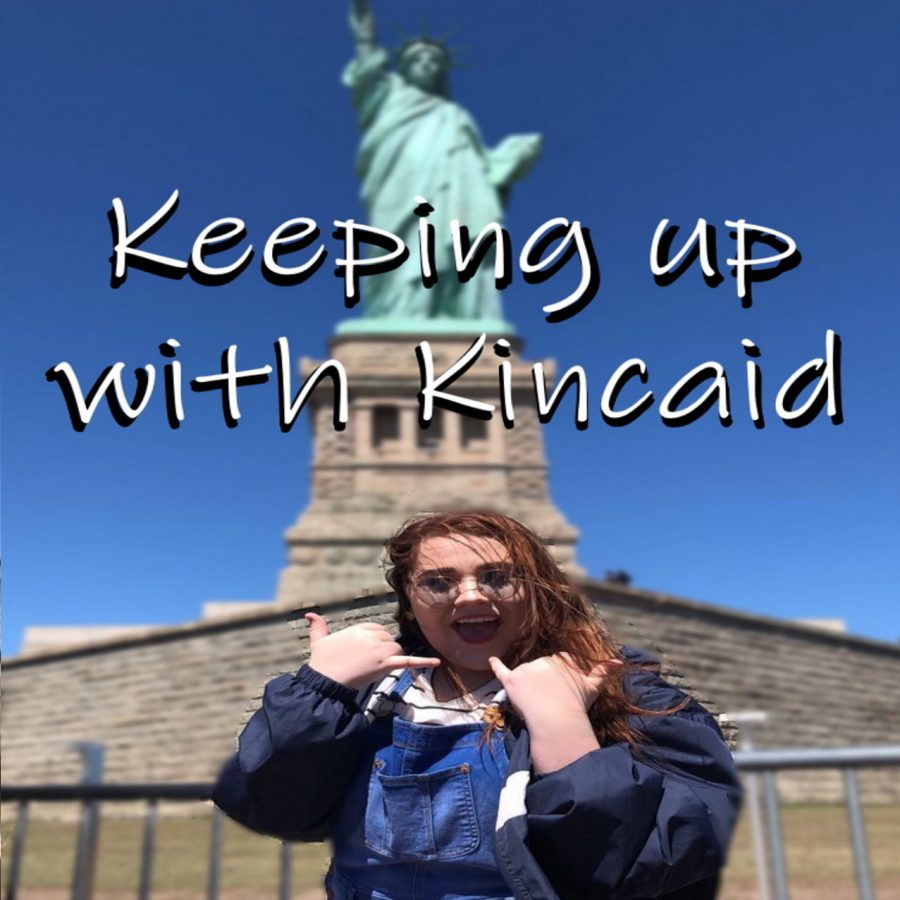Keeping up with Kincaid: Do I still do the Wordle?
Managing Editor, Laken Kincaid, introduces their dear readers to Milo
Jan 27, 2023
Tread. T-R-E-A-D. This is a term defined by Merriam Webster as “to walk in a specified way.” Two vowels and three common consonants with decent placements. It is objectively the best and my own personal Wordle starting word that I have used since January 2022; it is an expression I feel so passionate about I almost want to trademark it as my own, immutable vocable.
Every morning, or sometimes at the stroke of midnight if my Melatonin has not RKO’d me into a deep coma, I type the word “tread” into the New York Times’ cultural phenomenon website and wait for the green and yellow squares to appear.
For those that do not know what Wordle is, I assume you have been disconnected from the entire planet for over a year. In layman’s terms, it is a daily word game where, as CNet explains, “players [get] six chances to guess a randomly selected five-letter word.” If you can not do so within six turns, you lose your opportunity to succeed for the day and have to wait until the next twenty four hour cycle when you may try again (hopefully with more success).
It can be done alone or with friends, potentially even as a competition against colleagues for immense bragging rights. It can also function as a bonding experience; sending both your arch rivals and closest confidants alike how you performed on the day’s puzzle while they send their respective scores back without spoiling the puzzle for others. For reference, during his nationally accredited impromptu speeches, Ray Flannery ‘22 consistently referenced a news story where an eighty year old woman was saved during a home invasion after her daughter became concerned when she did not receive a daily Wordle report from her mother in a timely manner.
No matter the time of day you play or the environment you are in when you undertake the challenge, the premise still remains the same: guess the word of the day quickly and effectively.
Personally, completing the Wordle each day is a habit that I formed over the past year since winter RA formation in 2022. My head of hall at the time piqued the interest of much of the Millor staff and some of us have continued the tradition through two semesters. Others who do not play the Wordle, like Joel Larson ‘24, prefer to show support by liking my accustomed GroupMe messages where I report out my performance for the day.
At this point in my life, the Wordle is a predictable and highly anticipated part of my day. During the fall of my sophomore year, I became disorganized and even depressed as I meandered through my classes and extracurriculars. It was my first semester on John Carroll’s campus and I was a fish out of water. I felt as if each hour was unpredictable in the worst way possible (those who know me best could tell you that consistency keeps me sane). While I thought I needed a huge life reset to fix this mindset, I soon realized through things like the Wordle that minute habits are the building blocks for the stability I crave.
Where others wake up by making their bed or doing mid afternoon yoga to relieve their stress, I have my own personal tradition that, if I do not complete it, my entire day feels totally off-kilter. The Wordle provides a sense of routine that feels much needed in the scattered life of a working college student. Even over the summer when I spoke on a leadership panel for HOBY, I told over 50 high school students that the best thing to stop burnout is to find something that you can rely on and something that sparks joy that you can do every day.
I promise you, it does not take botox or a trip to white beaches in Cancun to adjust your perspective. It takes tiny initiatives that frame your approach to the bigger events like debate tournaments or deadline nights. It is the act of journaling for five minutes at night before bed, not the presentation of a 70 page dissertation that changes your outlook.
Just as I have written about my strategies for using my planner or random study tips for the wandering ADHD mind, my new self-righteous topic that I have taken on preaching is the importance of having something (no matter how tiny it may be) that helps you cling to some semblance of a routine during your waking hours. Like how Benjamin Franklin drew a bath at 5 a.m. every morning or how Albert Einstein craved a lengthy walk before sitting down to work, habits can curate your approach to life and the very lens you see it through.
So, in the spirit of the new year, I encourage you to consider creating a bold but simple resolution: create a new habit. While it does take 21 days to fully make (or break) a habit, seek out someone like Joel to hold you accountable. Or, find a way that sparks your motivation to continue like my competitiveness with my supervisors at my internship. Whatever brings you joy, envelop yourself into it and make it a staple part of your routine.
You could find a self care regimen or a nighttime habit. If you feel lost during the new year, please, find your Wordle.













